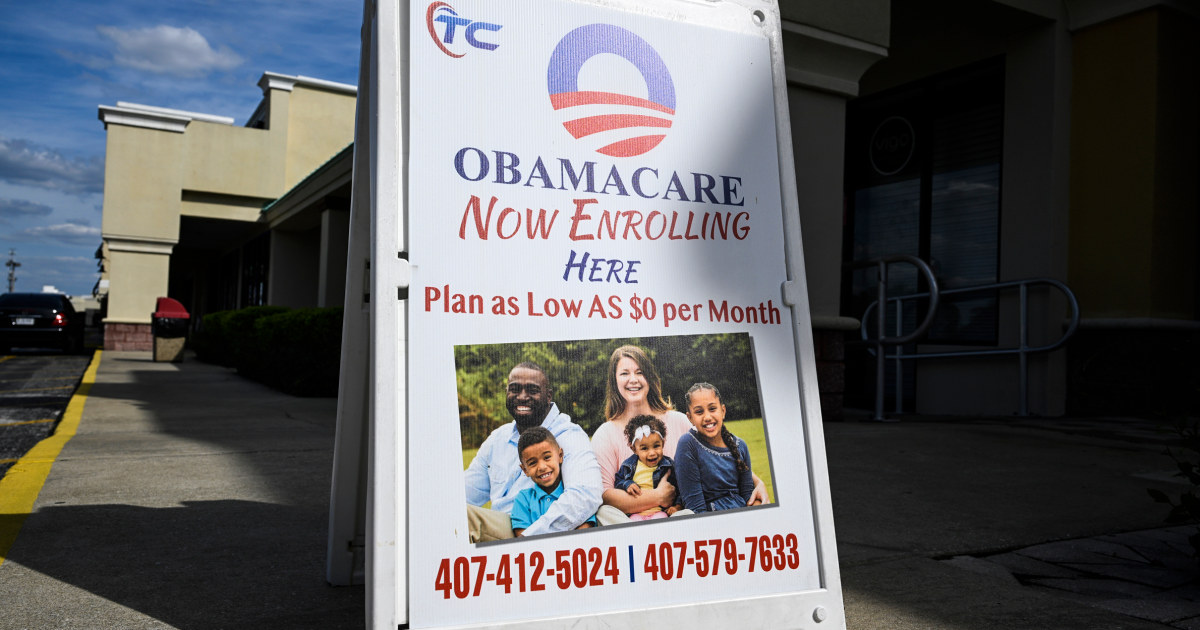Health
Republicans Revisit Health Care Debate Amid Rising Insurance Costs

As health insurance costs continue to rise, the Republican Party is reassessing its approach to health care policy, particularly regarding the Affordable Care Act (ACA). House Speaker Mike Johnson has expressed lingering concerns from past attempts to repeal and replace the ACA during President Donald Trump’s administration. This renewed focus comes as open enrollment for health insurance has begun, and enhanced subsidies provided under the ACA are set to expire at the end of the year, potentially more than doubling premiums for millions of Americans.
While Republicans have criticized the ACA as a failure, their current strategy avoids calling for a complete repeal. Instead, the party’s leaders emphasize the need to “fix Obamacare.” With the impending expiration of these subsidies, which could lead to increases of thousands of dollars in monthly premiums, party members face pressure to articulate a viable alternative.
In recent discussions, Republicans have yet to unify around a specific legislative plan. Johnson indicated that House Republicans are actively developing proposals, although he did not provide a timeline for their release. “We’ve been working on it every day,” Johnson stated during an interview with NBC News. He also mentioned recent communications with House Minority Leader Hakeem Jeffries regarding potential bipartisan solutions, although they diverge on the approach to extending ACA tax credits.
If Republicans fail to reach consensus on an alternative before the subsidies expire, they will face a critical decision: either join Democrats in extending these credits, a move that could provoke backlash from Trump, or allow them to lapse, risking voter dissatisfaction ahead of the upcoming midterm elections.
Republican Jeff Van Drew of New Jersey highlighted the political risks of inaction, warning that allowing subsidies to expire would be “political suicide.” Meanwhile, Senator Rick Scott has proposed a plan that would allocate federal funds to Health Savings Accounts to assist individuals directly, rather than subsidizing insurers. Scott aims to finalize and present this proposal before a mid-December deadline set by Senate Majority Leader John Thune.
Scott’s approach reflects a broader desire among Republicans to shift the focus of health care funding directly to consumers, allowing them to purchase plans that suit their needs without ACA regulations. Trump has shown support for this idea, suggesting during a recent bill signing that the proposed initiative could be branded as “Trumpcare.”
Another significant proposal comes from Senator Bill Cassidy, who advocates for Flexible Spending Accounts aimed at assisting ACA enrollees directly. Cassidy has engaged both Republican colleagues and the Trump administration in discussions, emphasizing the urgency of finding a workable solution to rising health care costs. “We actually want to get something that lowers health care costs for the American citizens implemented as quickly as possible,” Cassidy stated.
Despite the enthusiasm for these new proposals, experts caution that many ideas remain conceptual and lack detailed plans for implementation. Larry Levitt, a health policy expert at KFF, noted that simply suggesting alternatives without comprehensive plans leaves uncertainty about their feasibility and potential impact.
Another option for Republicans could involve using the “budget reconciliation” process to pass health care legislation with only GOP votes. Senator Lindsey Graham has pushed for this strategy, aiming to establish a Republican alternative to the ACA by early January. However, this approach faces substantial logistical challenges and scrutiny regarding what would be permissible under Senate rules.
The ongoing debate highlights the divide within the Republican Party about the future of health care policy. Some members, like Representative Marjorie Taylor Greene, argue that the party must prioritize developing a viable health care plan to avoid political repercussions. Greene noted that ignoring the issue could lead to significant electoral losses in the midterms.
As Republicans grapple with these challenges, Senate Minority Leader Chuck Schumer has framed the health care crisis as one that the GOP now “owns,” setting the stage for a contentious political landscape leading into the elections. Democrats are preparing to leverage this issue, promising a vote on an ACA extension in mid-December while exploring ways to attract Republican support.
In the meantime, Johnson has tasked House Majority Leader Steve Scalise with facilitating discussions among party members to develop a cohesive strategy. With listening sessions planned for the coming week, the party’s next steps will be scrutinized closely as they navigate the complexities of health care reform amid rising costs and political pressure.
-

 Top Stories1 month ago
Top Stories1 month agoRachel Campos-Duffy Exits FOX Noticias; Andrea Linares Steps In
-

 Entertainment13 hours ago
Entertainment13 hours agoJayda Cheaves Claims Lil Baby and Ari Fletcher Had an Affair
-

 Top Stories2 weeks ago
Top Stories2 weeks agoPiper Rockelle Shatters Record with $2.3M First Day on OnlyFans
-

 Top Stories2 weeks ago
Top Stories2 weeks agoMeta’s 2026 AI Policy Sparks Outrage Over Privacy Concerns
-

 Sports2 weeks ago
Sports2 weeks agoLeon Goretzka Considers Barcelona Move as Transfer Window Approaches
-

 Top Stories2 weeks ago
Top Stories2 weeks agoUrgent Update: Denver Fire Forces Mass Evacuations, 100+ Firefighters Battling Blaze
-

 Health2 months ago
Health2 months agoTerry Bradshaw Updates Fans on Health After Absence from FOX NFL Sunday
-

 Sports1 week ago
Sports1 week agoSouth Carolina Faces Arkansas in Key Women’s Basketball Clash
-

 Top Stories2 weeks ago
Top Stories2 weeks agoOnlyFans Creator Lily Phillips Reconnects with Faith in Rebaptism
-

 Top Stories1 week ago
Top Stories1 week agoCBS Officially Renames Yellowstone Spin-off to Marshals
-

 Top Stories2 weeks ago
Top Stories2 weeks agoOregon Pilot and Three Niece Die in Arizona Helicopter Crash
-

 Entertainment2 weeks ago
Entertainment2 weeks agoTom Brady Signals Disinterest in Alix Earle Over Privacy Concerns



